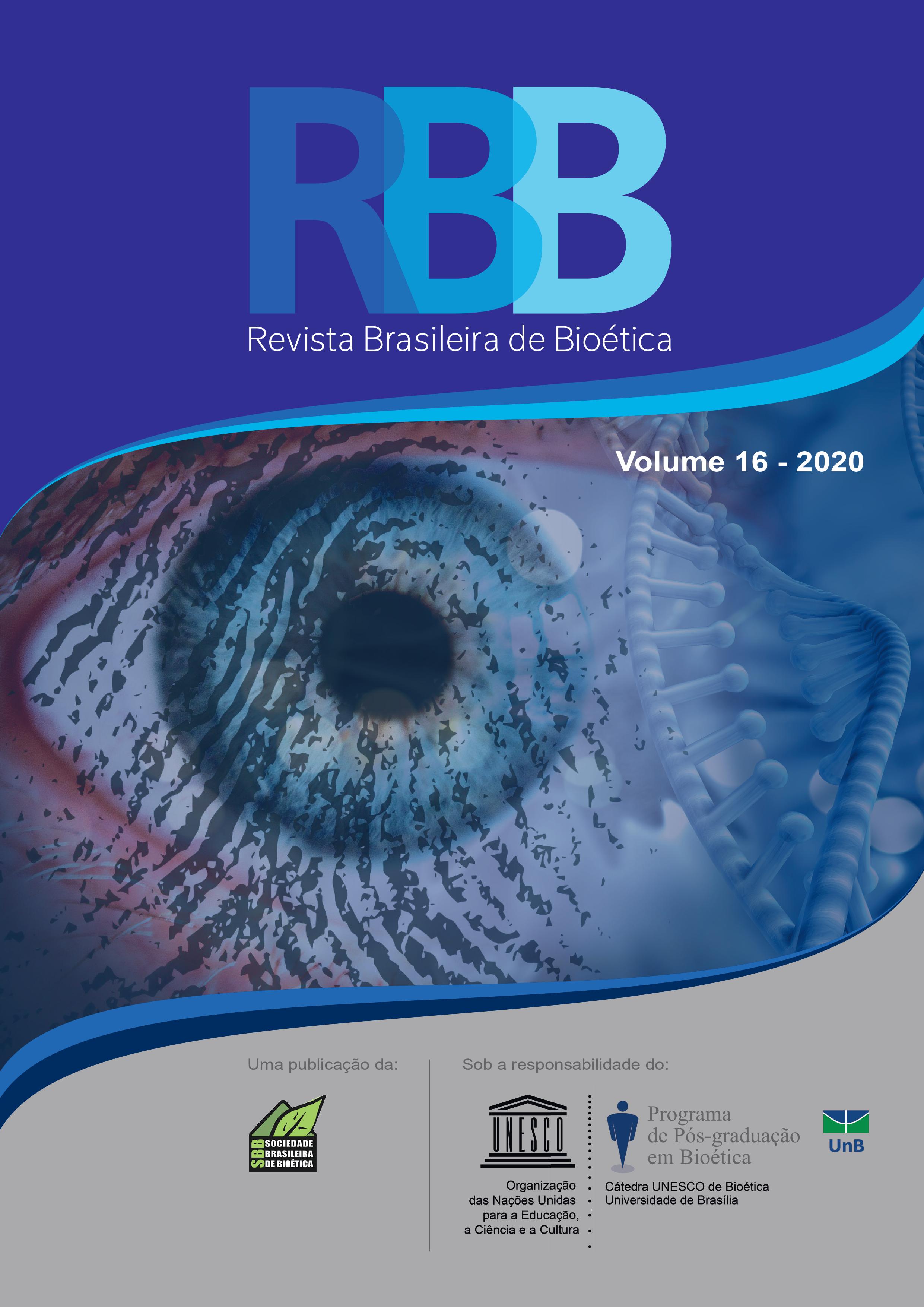Abortion in the conception of Personalist Bioethics by Elio Sgreccia
DOI:
https://doi.org/10.26512/rbb.v16.2020.32284Keywords:
Bioethics Personalist. Human Person. Embryo. Abortion. Conception.Abstract
The ethical dilemma of abortion has always challenged and polarized human societies, given the complexity of issues that orbit around them. This article aims to analyze abortion in the light of Elio Sgreccia's personalistic bioethical theory (1928-2019), explained in his classic work Bioethics Manual: Fundamentals and Biomedical Ethics. The Italian bioethicist bases his vision against abortion, through a reflection centered on the human person, that is, on an ontologically based personalism, seeking to establish connections between modern science and Christian metaphysics. The primacy of the human person takes place from conception and transcends the mind-body dualism, because the human being, ontologically, is a unitality that cannot be reduced only to the psychic or bodily reality. It is concluded that abortion is a service against the dignity of human life, given its fundamental axiological value, wounding the sacredness of existence.
Downloads
References
Beauchamp T; Childress, J. Principles of Biomedical Ethics. 3. ed. New York: Oxford University Press; 1989.
Bíblia Sagrada: Edição Pastoral. Êxodo. Tradução de Luiz Gonzaga do Prado. São Paulo: Paulus, 1990.
Dawson K. Fertilization and moral status: a scientific perspective. In: Singer P. (ed.). Embryo experimentation. Cambridge: University Press; 1990.
Donceel, JF. Immediate animation and delayed hominization: Theological studies 1970; 31(1):76-105. Acessível em: https://journals.sagepub.com/doi/abs/10.1177/004056397003100103?journalCode=tsja
Finnis J. Abortion and health care ethics II. In: Gillon R, editor. Principles of health care ethics. Chichester: John Wiley and Sons, 1994: 547-57.
Ford N. When did I begin? Conception of the human individual history, philosophy and science. Cambridge: Cambridge University Press; 1988.
JP II. Evangelium Vitae: carta encíclica sobre o valor e a inviolabilidade da vida humana. São Paulo: Paulus; 1995.
Junges JR. Bioética: perspectivas e desafios. São Leopoldo: Unisinos, 1999.
Kant I. Fundamentação da Metafísica dos Costumes. Trad. Guido Antônio de Almeida. São Paulo: Discurso Editorial; Barcarolla; 2009.
Lima Vaz HC de. Antropologia Filosófica I. São Paulo: Loyola; 1991.
Machado Filho C. O juramento de Hipócrates e o código de ética médica. Resid Pediatr. 2016; 6(1): 45-46. Acessível em: https://cdn.publisher.gn1.link/residenciapediatrica.com.br/pdf/v6n1a10.pdf
Mill JS. Utilitarismo. Porto: Porto Editora; 2005.
Mora JF; Cohn P. Etica aplicada del aborto a la violencia, Madrid: Alianza; 1983.
Mori M. Aborto e Morale. Milano: Il Sggiatore; 1996.
Pegoraro, OA. Ética e bioética: da substância à existência. Rio de Janeiro: Vozes; 2002.
Potter VR. Bioética: Ponte para o Futuro. Trad. Diego Carlos Zanella. São Paulo: Loyola; 2016.
Prado D. O que é aborto. São Paulo: Brasiliense; 1995.
Serra A. Quando comincia un essere umano. In: Sgreccia E. (Ed.). Il dono della vita. Vita e Pensiero: Milano; 1987.
Sgreccia E. Manual de Bioética: Fundamentos e ética biomédica. Tomo I. Trad. Orlando Soares Moreira. 4. ed. São Paulo: Edições Loyola; 2009.
Downloads
Published
How to Cite
Issue
Section
License
Copyright (c) 2021 Revista Brasileira de Bioética

This work is licensed under a Creative Commons Attribution-NonCommercial-ShareAlike 4.0 International License.



